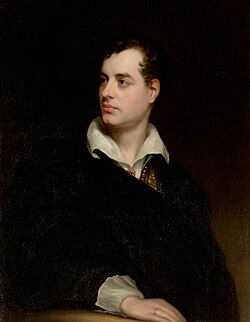Lord Byron Quote
Related Quotes
Call no man lucky until he is dead, but there have been moment of rare satisfaction in the often random and fragmented life of the radical freelance scribbler. I have lived to see Ronald Reagan called...
Christopher Hitchens
Tags:
cold war, colonialism, communism, czechoslovakia, despotism, dictatorship, freedom, greece, journalism, liberation
Sexual frenzy is our compensation for the tedious moments we must suffer in the passage of life. 'Nothing in excess,' professed the ancient Greeks. Why if I spend half the month in healthy scholarship...
Roman Payne
Tags:
ancient greece, ancient greeks, balance, beauties, cycles, europe, full moon, greece, lifestyle, moon
If you are a dreamer, come in,If you are a dreamer, a wisher, a liar,A hope-er, a pray-er, a magic bean buyer...If you're a pretender, come sit by my fireFor we have some flax-golden tales to spin. Co...
Shel Silverstein
Tags:
children books, crete, dreams, greece, happiness, jack r kearns, mrs sjostrom, nostalgia, third grade
About Lord Byron
George Gordon Byron, 6th Baron Byron (22 January 1788 – 19 April 1824), was an English poet. He is one of the major figures of the Romantic movement, and is regarded as being among the greatest British poets. Among his best-known works are the lengthy narratives Don Juan and Childe Harold's Pilgrimage; many of his shorter lyrics in Hebrew Melodies also became popular.
Byron was educated at Trinity College, Cambridge, before he travelled extensively in Europe. He lived for seven years in Italy, in Venice, Ravenna, Pisa and Genoa after he was forced to flee England due to threats of lynching. During his stay in Italy, he would frequently visit his friend and fellow poet Percy Bysshe Shelley. Later in life, Byron joined the Greek War of Independence to fight the Ottoman Empire, for which Greeks revere him as a folk hero. He died leading a campaign in 1824, at the age of 36, from a fever contracted after the first and second sieges of Missolonghi.
Byron was educated at Trinity College, Cambridge, before he travelled extensively in Europe. He lived for seven years in Italy, in Venice, Ravenna, Pisa and Genoa after he was forced to flee England due to threats of lynching. During his stay in Italy, he would frequently visit his friend and fellow poet Percy Bysshe Shelley. Later in life, Byron joined the Greek War of Independence to fight the Ottoman Empire, for which Greeks revere him as a folk hero. He died leading a campaign in 1824, at the age of 36, from a fever contracted after the first and second sieges of Missolonghi.
